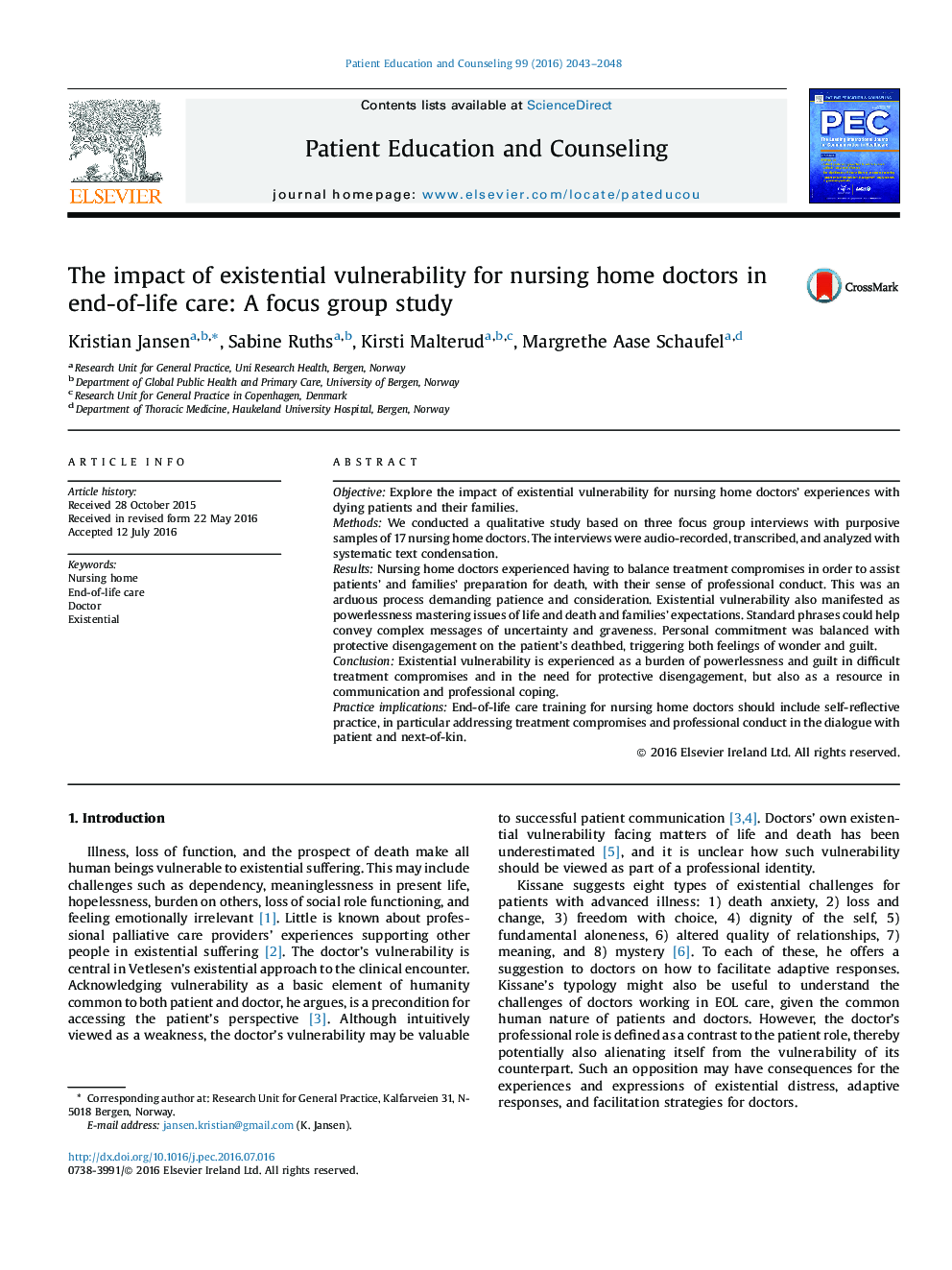| Article ID | Journal | Published Year | Pages | File Type |
|---|---|---|---|---|
| 5682166 | Patient Education and Counseling | 2016 | 6 Pages |
â¢Existential vulnerability is experienced both as a burden and a resource.â¢Difficult treatment compromises challenge professional conduct.â¢Personal commitment is balanced with protective distance.â¢Nursing home doctor training should include reflection around own vulnerability.
ObjectiveExplore the impact of existential vulnerability for nursing home doctors' experiences with dying patients and their families.MethodsWe conducted a qualitative study based on three focus group interviews with purposive samples of 17 nursing home doctors. The interviews were audio-recorded, transcribed, and analyzed with systematic text condensation.ResultsNursing home doctors experienced having to balance treatment compromises in order to assist patients' and families' preparation for death, with their sense of professional conduct. This was an arduous process demanding patience and consideration. Existential vulnerability also manifested as powerlessness mastering issues of life and death and families' expectations. Standard phrases could help convey complex messages of uncertainty and graveness. Personal commitment was balanced with protective disengagement on the patient's deathbed, triggering both feelings of wonder and guilt.ConclusionExistential vulnerability is experienced as a burden of powerlessness and guilt in difficult treatment compromises and in the need for protective disengagement, but also as a resource in communication and professional coping.Practice implicationsEnd-of-life care training for nursing home doctors should include self-reflective practice, in particular addressing treatment compromises and professional conduct in the dialogue with patient and next-of-kin.
